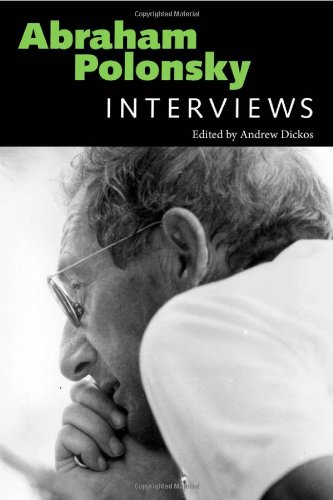

Most ebook files are in PDF format, so you can easily read them using various software such as Foxit Reader or directly on the Google Chrome browser.
Some ebook files are released by publishers in other formats such as .awz, .mobi, .epub, .fb2, etc. You may need to install specific software to read these formats on mobile/PC, such as Calibre.
Please read the tutorial at this link: https://ebookbell.com/faq
We offer FREE conversion to the popular formats you request; however, this may take some time. Therefore, right after payment, please email us, and we will try to provide the service as quickly as possible.
For some exceptional file formats or broken links (if any), please refrain from opening any disputes. Instead, email us first, and we will try to assist within a maximum of 6 hours.
EbookBell Team

5.0
90 reviewsAbraham Polonsky (1910-1999), screenwriter and filmmaker of the mid-twentieth-century Left, recognized his writerly mission to reveal the aspirations of his characters in a material society structured to undermine their hopes. In the process, he ennobled their struggle. His auspicious beginning in Hollywood reached a zenith with his Oscar-nominated screenplay for Robert Rossen's boxing noir, Body and Soul (1947), and his inaugural film as writer and director, Force of Evil (1948), before he was blacklisted during the McCarthy witch hunt.
Polonsky envisioned cinema as a modern artist. His aesthetic appreciation for each technical component of the screen aroused him to create voiceovers of urban cadences--poetic monologues spoken by the city's everyman, embodied by the actor who played his heroes best, John Garfield. His use of David Raksin's score in Force of Evil, against the backdrop of the grandeur of New York City's landscape and the conflict between the brothers Joe and Leo Morse, elevated film noir into classical family tragedy.
Like Garfield, Polonsky faced persecution and an aborted career during the blacklist. But unlike Garfield, Polonsky survived to resume his career in Hollywood during the ferment of the late sixties. Then his vision of a changing society found allegorical expression in Tell Them Willie Boy Is Here, his impressive anti-Western showing the destruction of the Paiute rebel outsider, Willie Boy, and cementing Polonsky as a moral voice in cinema.